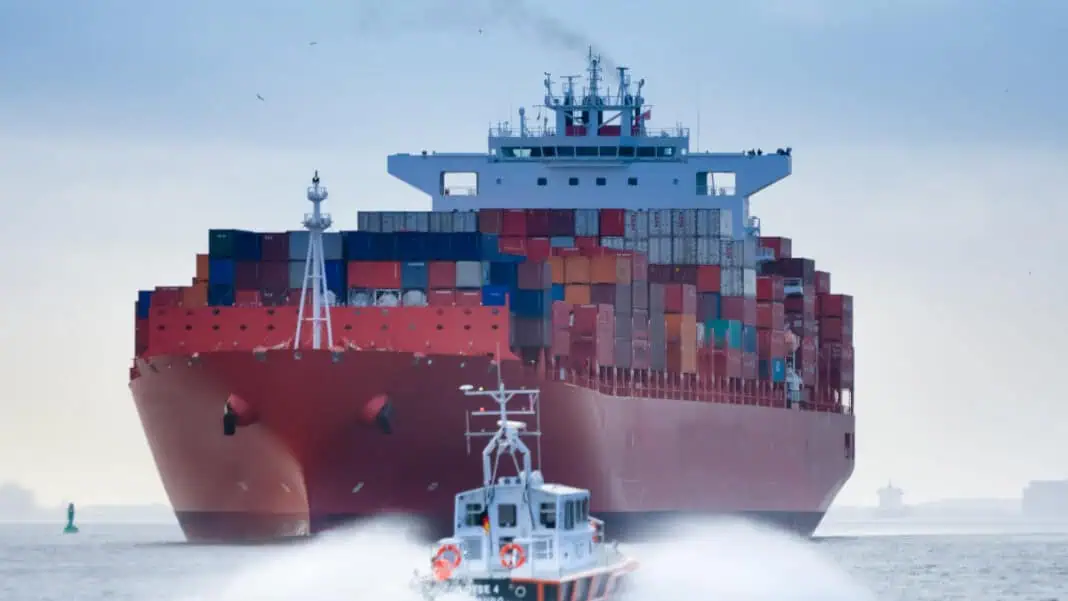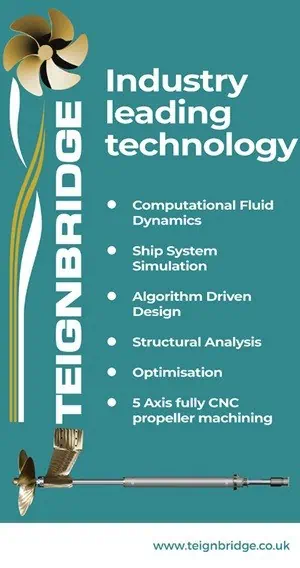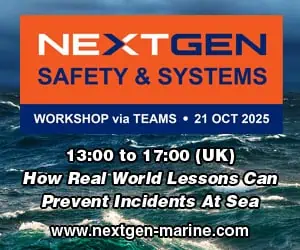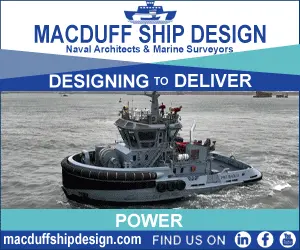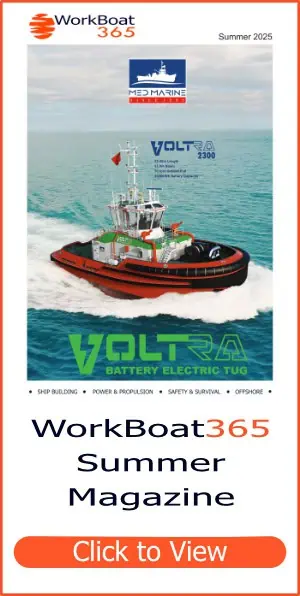Air pollution shortens lives. It damages people’s quality of life and health. It harms our environment and oceans.
The maritime sector is not immune to this problem. It contributes significantly to annual global greenhouse gas emissions. Solutions exist but the industry has been slow to act and play its role in addressing these pressing challenges.
The impact of air pollution
The Royal College of Physicians and the Royal College of Paediatrics and Child Health have estimated there are around 40,000 deaths a year in the UK linked to outdoor air pollution. In 2020, nine-year-old Ella Adoo Kissi Debrah was the first person in the UK to have air pollution listed as a cause of death by a coroner after she died following an asthma attack.
A recent major cross-border assessment in Ireland also revealed that around 2,600 premature deaths can be attributed to air pollution annually.
Poor air quality affects people throughout their lives. Some people suffer more than others because they live in deprived areas, which often have higher levels of air pollution. They may live or work close to busy roads or ports, or they may be more vulnerable due to their age or existing medical conditions.
The Clean Air Strategy 2019 states that air pollution is the top environmental risk to human health and the fourth greatest threat to public health after cancer, heart disease and obesity.
The fuel used for shipping is some of the most polluting fuel used across all transport modes. The shipping industry accounts for roughly 3% of global greenhouse gas (GHG) emissions. In 2021, UK domestic shipping alone was responsible for 12.7% of the UK’s total domestic emissions of nitrogen oxides, 2.2% of primary fine particulate matter emissions and 4.9% of its total sulphur dioxide emissions. This doesn’t include the significant air pollutant emissions from UK international shipping or ships passing through UK waters that don’t call at a UK port.
Particulate matter is made up from a huge variety of chemical compounds and materials, some of which are toxic. Due to their small size, the toxins can enter people’s bloodstream, be transported around the body and have a serious impact on health.
All of this shows that there is an urgent need to address emissions from maritime operations.
Taking action on emissions
The UK government’s Clean Maritime Plan states that we are on the cusp of a global transition to zero emission shipping. It says that zero emission shipping should be commonplace globally by 2050 and it wants the UK to have taken a proactive role in leading this transition.
As a decarbonising leader within the maritime industry, Artemis Technologies has already stepped up to the plate to deliver innovative solutions. In 2023 we went into serial production of the world’s first range of 100% electric foiling workboats and since then have gone on to develop vessels across a number of sectors including a pilot boat, crew transfer vessels and passenger ferry. Producing zero emissions in operation, we aspire to lead the way towards a greener and more sustainable future for our planet.
For short sea or coastal routes, electricity is widely acknowledged as the best choice among various green fuel alternatives for its positive impact on the environment, where it can be provided from a renewable source.
There are other alternative fuel options. In 2022, Dutch operator Windcat Workboats and Belgian engineering firm CMB. Tech unveiled a crewboat that uses hydrogen as its main fuel. The demand for marine biofuels is on the rise, however these are also not without an environmental footprint, both in their creation and in their burning.
Emission control areas (ECAs) apply stricter controls on air pollutant emissions. The Department for Transport (DfT) is considering extending the North Sea Emission Control Area beyond its current geographical limits or establishing a further, geographically distinct ECA in UK waters, and issued a call for evidence in January.
In our submission response, Artemis Technologies called on DfT to implement a policy requiring the operation of zero emission vessels, with a phased approach, based on the operational profile (distance and speed of operation) and size of vessel. For example, smaller vessels, operating over shorter distances, could be required to decarbonise earlier. There is strong evidence to show that the technology is available to support this measure and a similar policy is already operating in California.
Reducing emissions in California
The California Air Resources Board (CARB) is charged with protecting the public from the harmful effects of air pollution and developing programs and actions to fight climate change. In March 2022 CARB approved updates to its Commercial Harbor Craft Regulation aimed at reducing emissions from harbour craft like tugboats and ferries operating near California’s coast to improve public health in nearby communities, many of which are disadvantaged.
The CARB amendments require zero emission options where feasible, and cleaner combustion Tier 3 and 4 engines on all other vessels. Short run ferries, which include those traveling less than three nautical miles over a single run, are required to be fully zero emission by the end of 2025.
The amendments are being phased in from the start of 2023 through to the end of 2032. Some vessel categories do not have to upgrade until the end of 2034 if the vessel owner applies for and receives an extension if a replacement vessel is required but cannot be afforded.
By 2035, CARB said, the amendments are expected to result in an 89% reduction of diesel soot (also known as particulate matter), a 54% reduction in nitrogen oxides and will reduce the cancer risk to over 22 million residents who live near the coast and up to 50 miles inland.
CARB also said that the diesel soot reduction achieved by 2038 due to the amendments would be equivalent to eliminating 246,000 heavy-duty diesel trucks travelling from Los Angeles to Sacramento every day for a year.
The benefits of our foiling technology
In 2022, Artemis Technologies launched the world’s first commercially coded 100% electric foiling vessel, incorporating our patented Artemis eFoiler® system. Sea trials of the vessel, alongside our gasoline powered sistership, have been used to determine energy efficiency, ride comfort, and wake creation of the two vessels across a wide range of weather conditions.
Vessels developed with Artemis eFoiler® propulsion will operate with up to 90% lower fuel costs compared with traditional ferries.
An electric hydrofoil boat can also provide a more comfortable, quiet ride above the waves for passengers, minimal wake creation causes less damage to shorelines, and they have the ability to deliver a greater range at increased speed. Artemis Technologies’ vessels are zero emission in operation.
All zero emissions solutions have an associated increased capital cost which reflects the cost of the development of new technology. In some instances this is a perceived blocker to adoption, and an area in which government incentives to decarbonise, or penalty not to decarbonise, can be of benefit.
However, this isn’t the whole story. In reality, zero emission vessels save operators significant costs over the long term. It’s important to consider total cost of ownership for the whole life of a vessel. Compared to a conventional high-speed diesel ferry, the Artemis Technologies’ EF-24 Passenger has a much lower operating expense due to the increased energy efficiency, fuel cost savings and reduced maintenance costs.
Today, over 3,200 pilot vessels operate globally (around 960 registered in UK and EU), emitting 820,000 tonnes CO2e each year. Pilot vessels account for 2% of all the waterborne emissions of large harbour. The need for pilot vessels is expected to follow the anticipated growth of 6.4% of the world merchant fleet over the next five years.
A typical pilot vessel can consume between 450-800 litres of diesel a day, emitting up to 1,200 tonnes CO2e per year. Adopting cleaner technology would drop these operational emissions to zero and result in significant OPEX savings through fuel savings and reduced maintenance costs.
Policy to support decarbonisation
The technological advances taking place around the world need to be supported by strong government leadership and policy to enable the dramatic emission reductions required to protect our planet and its precious oceans now and in the future.
Artemis Technologies isn’t the only company working to reduce emissions. Harland & Wolff are leading a UK consortium to build a zero emissions harbour and coastal tug. Damen shipyard has developed electric tugs which can be charged in two hours and built electric patrol vessels now operating in the city of Amsterdam. Meanwhile, Tidal Transit has begun the design and engineering phase of a ground-breaking project to deliver the world’s first retrofit electric CTV with offshore and onshore charging. In 2022, a 135-passenger, fully electric catamaran was built by Wellington Electric Boat Building Company and delivered locally in Wellington, New Zealand.
The new emissions policy we are calling for could be introduced on a staggered basis by vessel type. For example, first targeting commercial vessels with known duty cycles. Then tugs, pilot boats, ferries and crew transfer vessels.
The Maritime 2050 strategy states that the vision for zero emission shipping is: “In 2050, zero emission ships are commonplace globally. The UK has taken a proactive role in driving the transition to zero emission shipping in UK waters and is seen globally as a role model in this field, moving faster than other countries and faster than international standards. As a result, the UK has successfully captured a significant share of the economic, environmental and health benefits associated with this transition.”
To reach this goal, it notes that the maritime sector must act with a sense of urgency and quickly reduce its environmental impacts. We would argue that phasing in a policy which requires the operation of zero emission vessels will protect our people and planet and help make the government’s ambitious vision for UK maritime in 2050 a reality.
Discover Artemis Technologies’ range of vessels which produce zero emissions in operation by clicking here.
Editorial by – Kathryn Torney – Head of Content – Artemis Technologies



